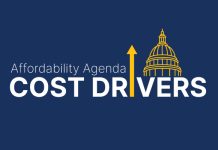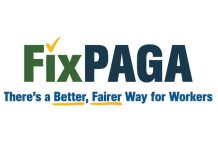In this episode of The Workplace podcast, CalChamber Associate General Counsel Matthew Roberts and CalChamber Senior Policy Advocate Ashley Hoffman discuss several employment-related bills sent to the Governor to potentially sign into law and what these could mean for employers.
After thousands of bills were introduced in 2025 — including some having a direct impact on employers — the regular 2025 California legislative year has ended. Now, Gov. Gavin Newsom has until October 13 to sign or veto legislation passed through both legislative houses.
This year, the California Chamber of Commerce highlighted cost-of-living concerns for California’s businesses and residents, creating the Affordability Agenda. In it, CalChamber designated certain bills as either:
- Cost Drivers that increase costs for businesses and consumers; or
- Cost Cutters that reduce costs for businesses and consumers.
Out of 29 Cost Driver bills, 28 were stopped or amended across all issue areas. Only one Cost Driver is on the Governor’s desk awaiting his decision — Senate Bill 7. SB 7 is an employment-related bill regulating the use of automated-decision systems (ADS) in the workplace.
Although it underwent several amendments just before the legislative deadline, from CalChamber’s perspective, it’s still overly broad. Not only is the definition of an ADS very broad, but the employer notice requirement could lead to voluminous amounts of disclosures. Another big concern is how SB 7 treats employees and independent contractors exactly the same, meaning every obligation for an employee also applies to a contractor.
Additionally, Roberts and Hoffman discuss other employment-related legislation in front of Gov. Newsom, including:
- AB 1136, which creates new immigration-related protections including a new five-day leave.
- SB 294, which creates another employer notice requirement.
- AB 858, which extends for another year a COVID-19 right-to-rehire law.
- AB 692, which affects benefits like hiring bonuses or tuition-assistance payment programs employers offer voluntarily to incentivize and retain employees.
- SB 642, which clarifies employer pay scale obligations and amends the Equal Pay Act to allow a plaintiff to recover damages dating back six years, requiring employers to litigate six years’ worth of fact-specific claims.
Listen to the podcast to learn more about these bills.
|
ACTION ALERT |
CalChamber members can read about more new 2026 employment laws in detail in the October issue of our HRCalifornia Extra newsletter. If you don’t already receive the newsletter, sign up now. Our annual free new laws whitepaper will be coming in November (stay tuned!).
Not a member? Learn more about how CalChamber membership, including access to HRCalifornia, can help you.

